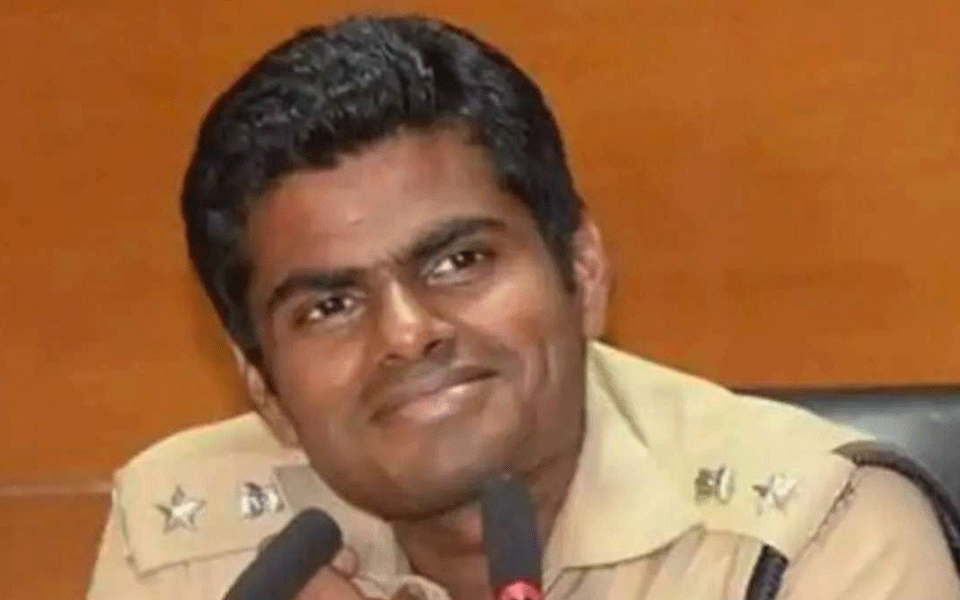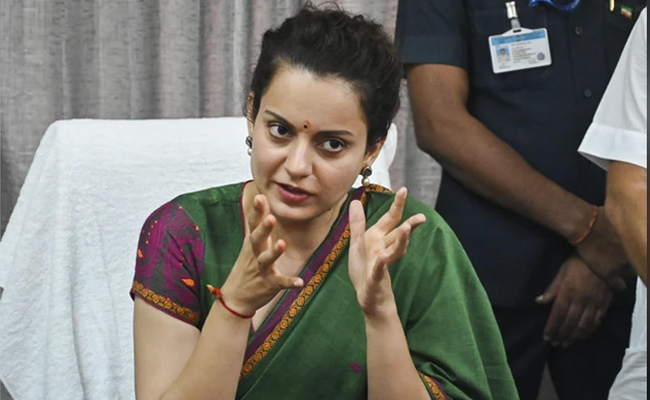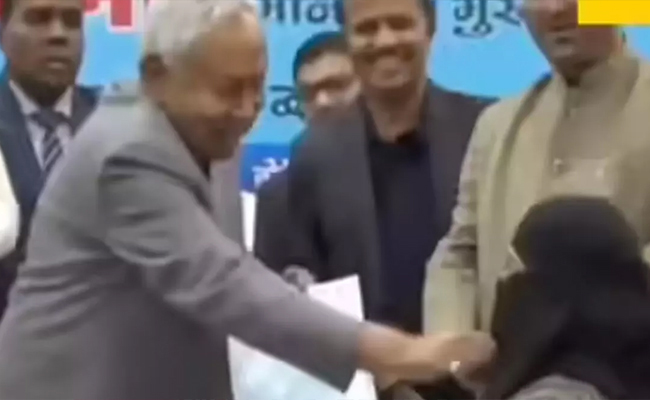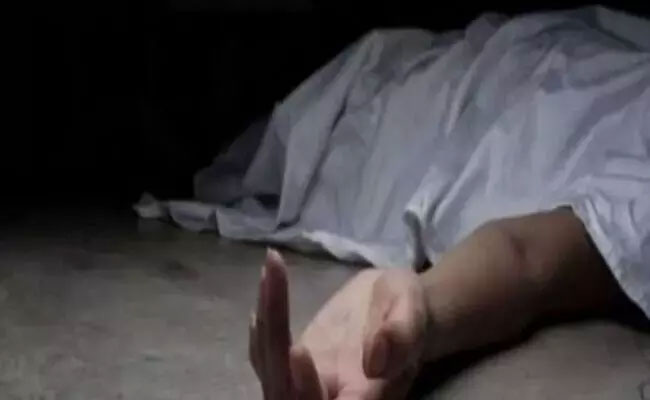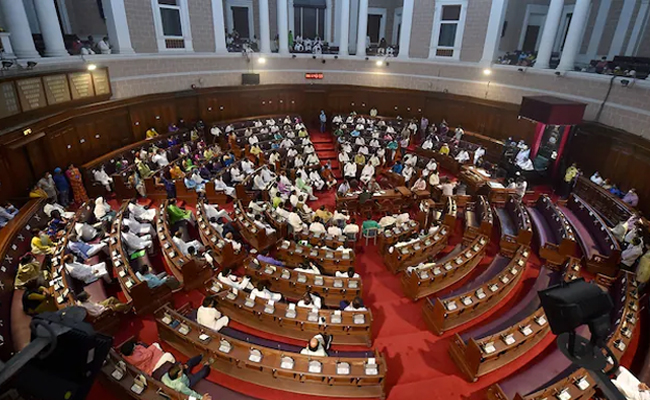This news story was published by 'thenewsminute.com' and has been shared here without any changes and alterations. CLICK HERE to read the original post.
New Delhi:Former IPS officer Annamalai Kuppuswamy will formally join the Bharatiya Janata Party (BJP) on Tuesday at 1 pm in an event in New Delhi ending months of speculation about his foray into politics.
Annamalai, who served as an IPS officer in Karnataka, and was popularly referred to as ‘Singam’ quit the police force in May 2019. Following his resignation, he was expected to join the BJP but over the last few months, Annamalai said he tussled with the idea of starting independently in politics. “I was considering my options over the last few months but finally I have decided to join the BJP and start my political career,” Annamalai told TNM.
Speaking to TNM, Annamalai said he saw himself as a natural fit in the BJP. “I closely align with the larger vision of the BJP. I will have an opportunity to be in the party and help grow the party in Tamil Nadu,” he said, adding,"I see I am a natural fit there (in BJP)." He was in talks with other parties including Rajinikanth but eventually decided to join the BJP.
He said he did not consider joining the Dravidian parties, which have a duopoly over politics in Tamil Nadu. “I also felt that the Dravidian parties are not true to their original mission of bringing about change. The ideals of Annadurai, Periyar and MGR were different from the ideals of today’s leaders,” he said.
Responding to public discussion over his decision to join the BJP, Annamalai said that unlike the police force, he now has the freedom to express his opinions. “I am reading a lot of discussions online about my ideology based on a few tweets. When I was a police officer, my master was the Constitution of India...I am not going against the Constitution now but unlike in my time in the police force, I have the freedom to express my opinions,” he added.
His decision to join the BJP comes after he gave multiple interviews to the Tamil media, clearly stating that his political plunge will come later and not anytime soon. He had said that his first priority is to support and strengthen the grassroots in his native town in terms of agriculture and education and then think of electoral politics.
This news story was published by 'thenewsminute.com' and has been shared here without any changes and alterations. CLICK HERE to read the original post.
Let the Truth be known. If you read VB and like VB, please be a VB Supporter and Help us deliver the Truth to one and all.
New Delhi: A significant political controversy has erupted following the Modi government's decision to rename the Mahatma Gandhi National Rural Employment Guarantee Act (MGNREGA), a move that has drawn sharp criticism from opposition parties. The row was further fueled by BJP MP Kangana Ranaut, who, while defending the name change, erroneously claimed that Mahatma Gandhi had made the devotional song "Raghupati Raghav Raja Ram" India’s national anthem.
The central government has rebranded the flagship rural employment scheme from MGNREGA to the "Viksit Bharat-Guarantee for Employment and Livelihood Mission," abbreviated as VB-G RAM G. The removal of Mahatma Gandhi's name from the scheme has been termed an insult to the Father of the Nation by the Congress and other opposition parties.
When questioned by the media outside Parliament regarding the opposition's allegations, Mandi MP Kangana Ranaut defended the government's decision by invoking Mahatma Gandhi's devotion to Lord Ram.
"How is naming it 'Ram Ji' an insult to Gandhi ji?" Ranaut asked. "Mahatma Gandhi made 'Raghupati Raghav Raja Ram' the national anthem to organize the entire country. Therefore, this is an insult to Mahatma Gandhi? The government is fulfilling his dream by giving it the name of Ram."
Ranaut's claim regarding the national anthem was immediately seized upon by the opposition. Congress leader Supriya Shrinate shared the video of Ranaut’s statement on social media, tweeting sarcastically, "Come on brother, today we learned a new national anthem! The BJP is full of such gems."
Social media users also trolled the MP for the factual error. One user quipped, "Kangana ji forgot to mention that Bapu made this the national anthem after the country got independence in 2014," while another commented that the party finds people who "don't use their brains while forwarding WhatsApp messages."
Beyond the social media mockery, senior Congress leaders criticised the renaming on ideological grounds. Former Rajasthan Chief Minister Ashok Gehlot took to X (formerly Twitter) to condemn the move.
"The biggest irony is that Mahatma Gandhi was a lifelong devotee of Lord Ram and said 'Hey Ram' in his last moments," Gehlot wrote. "Today, the central government is making a despicable attempt to sideline Gandhi ji under the guise of the same 'Ram' name (VB-G RAM G), which is highly condemnable."
मनरेगा का नाम बदलने की केंद्र सरकार की कवायद महात्मा गांधी के प्रति उनकी ओछी मानसिकता और असम्मान का प्रमाण है। सरकार पहले 'पूज्य बापू' के नाम का शिगूफा छोड़ती है और फजीहत होने पर अब 'विकसित भारत-गारंटी फॉर रोजगार एंड आजीविका मिशन (VB-G RAM G)' जैसा नाम थोपना चाहती है। बार-बार नाम…
— Ashok Gehlot (@ashokgehlot51) December 15, 2025
गांधी जी ने ‘रघुपति राघव राजा राम’ को लेकर नेशनल एंथम बनाया था
— Supriya Shrinate (@SupriyaShrinate) December 16, 2025
BJP MP कंगना रनौत
चलो भाई आज नया नेशनल एंथम भी पता चला है!
BJP में एक से एक शिरोमणि भरे पड़े हैं 😂🤣 pic.twitter.com/9DvyV5xLb1

